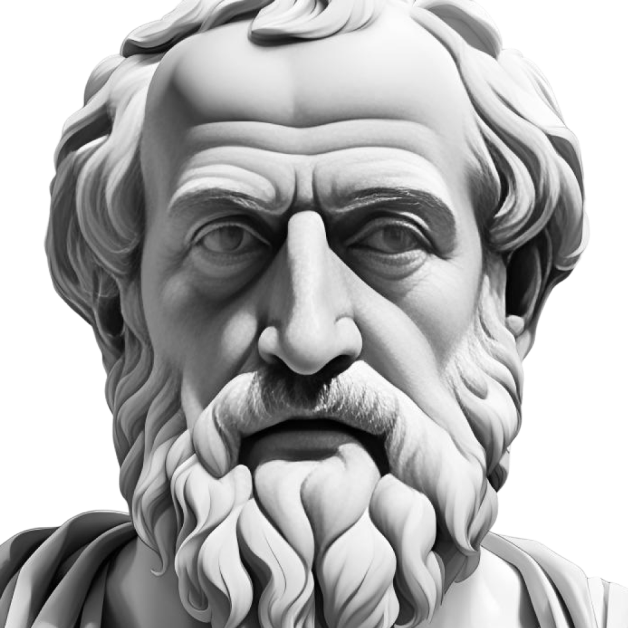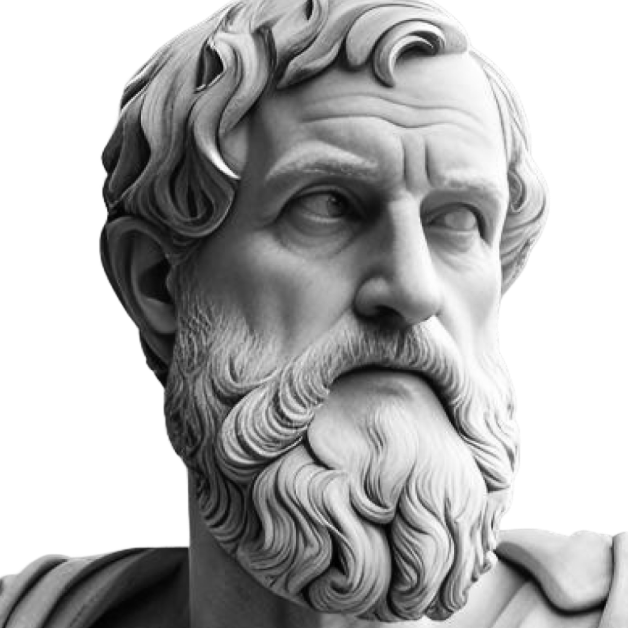…~1,967 years passed…

Plato (Greek Philosopher)
He believed in the existence of an eternal world of Forms or Ideas, which he considered to be the true reality behind the ever-changing physical world. Plato emphasized the importance of reason, the pursuit of knowledge, and the concept of justice in building an ideal society.
Plato, a philosopher and mathematician, was a prominent figure in ancient Greece. Born around 427 BC in Athens, he was a student of Socrates and later became the teacher of Aristotle. Plato is best known for his philosophical works, including dialogues such as “The Republic” and “The Symposium.” His philosophy covers a wide range of topics, from metaphysics and ethics to politics and epistemology. Plato’s ideas were deeply influenced by his teacher, Socrates, and he sought to develop a comprehensive philosophical system.
- What is the nature of true and false?
- What are the connections between premises and conclusions?
- What is the nature of definition?
…~1,967 years passed…

Plato (Greek Philosopher)
Plato, a philosopher and mathematician, was a prominent figure in ancient Greece. Born around 427 BC in Athens, he was a student of Socrates and later became the teacher of Aristotle. Plato is best known for his philosophical works, including dialogues such as “The Republic” and “The Symposium.” His philosophy covers a wide range of topics, from metaphysics and ethics to politics and epistemology. Plato’s ideas were deeply influenced by his teacher, Socrates, and he sought to develop a comprehensive philosophical system.
He believed in the existence of an eternal world of Forms or Ideas, which he considered to be the true reality behind the ever-changing physical world. Plato emphasized the importance of reason, the pursuit of knowledge, and the concept of justice in building an ideal society.
- What is the nature of true and false?
- What are the connections between premises and conclusions?
- What is the nature of definition?
…~1,967 years…
Philosophical study of human logic
Socrates
Plato
Aristotle
BC
(Ante Christum)
0
Human logic theories applied to mathematics
AD
(Anno Domini)
Leibniz
Boole
Shannon